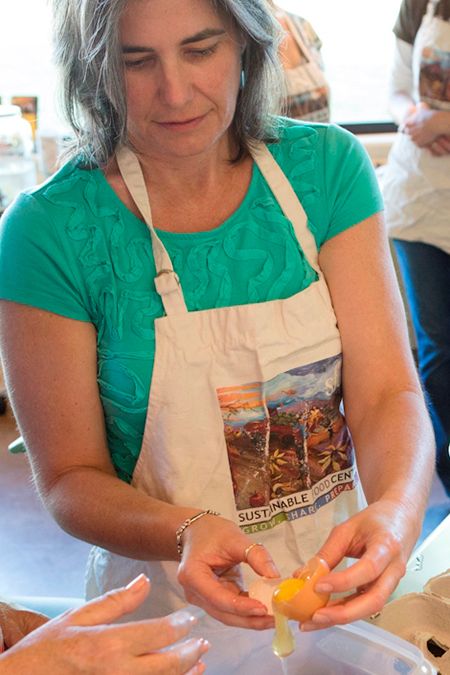If you don’t know how to cook, just the thought of it can be intimidating. Cooking takes time, ingredients cost money, and if things don’t turn out... well, you’re still hungry. But cooking doesn’t have to be hard (or expensive), and it can even be fun once you get the hang of it! We asked our Happy Cooks – class participants, facilitators, Facebook group and THK staff – to share their tips for getting started in the kitchen and here’s what they had to say:

The Happy Kitchen’s Tips for Getting Started in the Kitchen
Amy Ramm
From The Happy Kitchen staff
- Have a plan, but leave a little room for improvising. If you shop without a plan, you’ll likely have more waste. That said, don’t be afraid to pick up some purple cauliflower or pomegranate molasses it will inspire you to try something new.
- Set an attainable goal, practice it, and then add to it. Goals like “cook once a week” or “try one new recipe a month” help you build skills and develop a repertoire, which in turn prepare you for a bigger goal, like a dinner party.
- Find someone to share with. Togetherness makes the food we eat more meaningful and more enjoyable. Take a class together, plant a garden together, cook together, or collect family recipes for a cookbook…there are so many ways to share food.
- Buy dried herbs and spices from the bulk foods aisle. A pre-filled spice rack is a common gift for new cooks, but most will be stale long before you finish them, and some you will never use at all. Instead, buy herbs and spices in small quantities from the bulk section of the store. It’s cheaper and it lets you experiment and learn what you like. They are also more flavorful and take up a lot less room!
- Make your own stocks. It’s more economical, more nutritious, and the flavor can’t be beat. It’s also easy. See our guide for homemade stocks.
From participants and Happy Kitchen facilitators
- “Get a good chef’s knife and keep it sharp!” We couldn’t agree more! A good chef’s knife doesn’t have to cost a lot ($35-40 at a restaurant supply store) and makes food prep quicker, easier and safer. Check out few of our favorite knife tips videos for Choosing, Sharpening, Cutting and Cleaning your knives.
- Stock your fridge and pantry with ingredients commonly used in your favorite dishes. “You will cook more often! Because I always have green onions, cilantro, onion, lime, garlic and eggs in my fridge, I know I have the makings of a quick meal I will enjoy.”
- “Learn to make one pot meals.” Dinner can be ready in no time, and with a lot less mess, when everything is cooked together in the same pot. Sauté some vegetables, then add some stock, a grain/starch and a protein, finish it with some fresh herbs and, voila!
- Start a garden. “You’ll find you cook more when fresh herbs and vegetables are right outside your door (or on your windowsill)!”
- “Take a cooking class. It helped me get the basics down and it was fun!” If we don’t say so ourselves, cooking classes are a great way build skills, confidence and community.
